The KCCure Kidney Cancer Patient Advisory Board is a national board of patient advocates who represent the diverse community of patients, caregivers and stakeholders impacted by this disease.
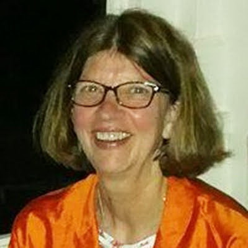 Debra Gottsleben – Morristown, NJ
Debra Gottsleben – Morristown, NJ
Co-Chair, KCCure Patient Advisory Board
In 2015, Debra was diagnosed with RCC after a CT scan revealed several masses in both her right and left kidneys. Her mother was treated for kidney cancer in 2000 and two of her aunts have been diagnosed with bilateral oncocytomas. Her maternal grandmother died of renal failure possibly as a result of untreated kidney tumors. Debra went to several different medical centers before having a robotically assisted laparoscopic partial nephrectomy at the NIH. After surgery it was determined that she suffers from a very rare genetic disorder, Familial Renal Oncocytomas. She has participated in several different studies and is currently a patient in active surveillance at Johns Hopkins.
She began her career as an insurance sales agent in Northern NJ and then went back to school to become a certified school librarian. She currently works at Morristown High School in Morristown, NJ and is also an adjunct professor in the Educational & Human Services Dept. of Seton Hall Univ. She serves as the social media mentor for Curious Science Writers. Additionally, she is a member of the Morristown Planning Board, has served as chair of the Morristown Environmental Comm. and was recently appointed to the NJ State Planning Officials Board of Trustees. She was formerly the chair of the BirthCenter at the Beth patients advisory council and was president of the northern NJ branch of the International Cesarean Awareness Network.
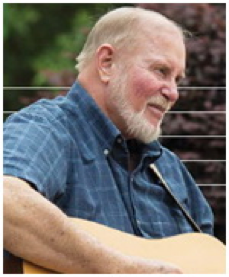 Michael B. Lawing – Rutherford County, NC
Michael B. Lawing – Rutherford County, NC
Co-Chair, KCCure Patient Advisory Board
Mike was diagnosed with stage III Renal Cell Carcinoma in November, 1997 underwent a complete radical nephrectomy and was given a hopeful five years of survivorship. After developing metastatic disease in 2000, he received low and later high dose IL-2 therapy, underwent several surgeries, and received long-term treatment with Sutent. In 2016 he began a series of infusions of Opdivo and has had stable disease with no additional treatment for over a year.
Mike has been involved in cancer advocacy for over a decade. He has served numerous times as a consumer reviewer for the NCI and CDMRP; served on the board of directors for two non-profit cancer organizations; was a member of the patient advisory workgroup for a large pharmaceutical company and is an affiliate member of the American Association for Cancer Research. He regularly corresponds with patients and caregivers through various cancer-related forums, and is a Co-Host for The Powerful Patient www.powerfulpatient.org
When Mike was diagnosed in 1997 there was not a lot of information available about kidney cancer; his first doctors encouraged him to try to learn as much as he could about the disease and to share it with others he would meet along the way. When his disease progressed and he was referred to a specialist, he too offered the same encouragement. A portion of Mike’s journey was featured in the 2017 Summer Issue of Cancer Today Magazine: http://www.cancertodaymag.org/Summer2017/Pages/The-Gift-of-Music.aspx?Page=0
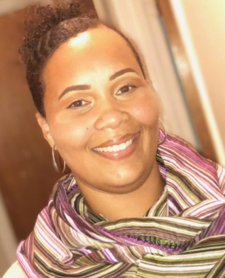 Cora Connor – North Charleston, SC
Cora Connor – North Charleston, SC
Kidney cancer impacted my life when my brother Herman, was diagnosed with a very rare type of it – Renal Medullary Carcinoma – five years ago in April 2012. I could never forget that day the doctors met with him & my mom to tell him that there was nothing they could do for him. I refused to believe that Herman was going to die. As I stayed up night after night searching for answers and being led down lots of dead ends I realized that someone had to speak up about this. Over the past five years, I have been contacted by countless people who have traveled the same road as us. Many of them never got the chance to begin treatment because, by the time they were diagnosed, it was too late. It made me realize that just because RMC is considered rare, doesn’t mean we are invisible. Many people are young, distraught, and are afraid to speak up. I made a promise to Herman that I would fight not only for him, but for others too. It’s a promise that I have strived to keep.
Out of this struggle, R.M.C. (Renal Medullary Carcinoma) Inc. www.rmcsupport.org was established in 2013, with the purpose to raise awareness of an extremely rare and devastating kidney cancer that primarily affects those with the sickle cell trait. Social Media sites have been developed, and we refer patients diagnosed or having symptoms of RMC to specialists. Through our efforts and those of other organizations and a team of worldwide healthcare professionals the RMC Alliance has been created to raise awareness, collect information, and to promote research of this rare and deadly cancer.
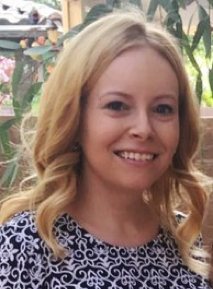 Laura Esfeller – Henderson, NV
Laura Esfeller – Henderson, NV
Laura is a survivor of papillary renal cell carcinoma. She is an advocate of clinical trials and patient access to quality healthcare. Laura owes her life to the phenomenal medical professionals who have been instrumental to her recovery. She was diagnosed in May 2016 as a stage IV patient, just a few days after her birthday. Laura underwent a radical nephrectomy and then enrolled in the PAPMET clinical trial for patients with metastatic papillary kidney cancer. She has been taking Cabometyx since September 2016 as part of the trial, and she has been NED since June 2017. When not fighting cancer, Laura is a marketing professional in the gaming and hospitality industry who received her B.A. in mass communication from Louisiana State University and her M.A. in strategic communications from National University. She is also active in her local Catholic church as a catechist aide and in the Las Vegas alumnae chapter for Sigma Alpha Iota, the international women’s fraternity for music. A native of Gonzales, Louisiana, she has lived in Nevada for the past 6 years with her husband and two daughters, and also has a stepdaughter who lives out of state. In her spare time, Laura is a cheer and dance mom. She also enjoys yoga and Zumba, writing, cooking with her daughter, reading, traveling, and hiking with her family.
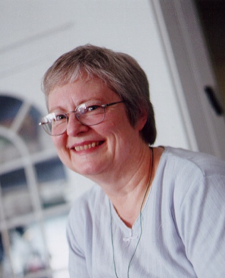 Joyce Graff – Brookline, MA
Joyce Graff – Brookline, MA
Joyce Wilcox Graff is the President of Powerful Patient, Inc. www.powerfulpatient.org a non-profit patient advocacy practice which works to empower people with complex medical conditions and disabilities, helping them learn to manage their health and healthcare. Impelled by the lack of information to help her late husband and their son, she founded the VHL Alliance in 1993, working with other affected families and physicians worldwide to develop strategies to improve outcomes for people with von Hippel-Lindau and other hereditary kidney cancer conditions.
Joyce serves as an advisor on patient perspective in healthcare treatment to many groups, including the Kidney Cancer Program of Dana Farber/Harvard Cancer Center in Boston, and the Education and Training Committee of the Newborn Screening Working Group of the Health Resources and Services Administration (HRSA). She serves on the Board of Directors of the International Kidney Cancer Coalition (IKCC).
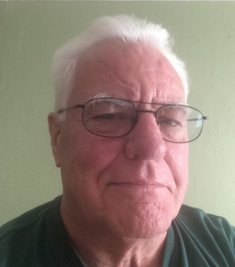 George Hall – Hayward, CA
George Hall – Hayward, CA
I have been a Kaiser Health member throughout my life. I discovered that I had contracted kidney cancer while looking for something else; investigating a possible hernia, my doctor ordered a CT scan. A large cancerous growth was found on my right kidney. A nephectomy was performed in Feb 2011. CT scans every six months were clear until Dec 2012 when growth was seen in each adrenal gland
Sutent was the first medication I tried. A deep wound developed on my right foot causing sutent to be interrupted a number of times. Finally, in Oct. 2014 we changed to Inlyta. The side effects were tough and my doctor changed to Afinitor. Within a month I experienced fluid in my lungs. We then tried Avastin. My doctor retired and I found a new doctor in Aug. 2015. After a CT scan in Dec. 2015 it was discovered that there was growth. We began infusions of Opdivo right away. Opdivo quickly became my favorite; with no side effects, I felt great.
My medical teams have helped me be aggressive in order to keep this kidney cancer stable. During 2016 we used targeted radiation on each adrenal tumor while staying on Opdivo. After a CT scan in June 2017 we found that while the tumors were stable there was a lesion on the iliac node of my left hip. Sadly I had to stop Opdivo. I received 5 treatments of radiation on this spot. Then it was recommended I try Inlyta again at a lower dose. My last CT and bone scan in Sept 2017 showed no growth and no new spots.
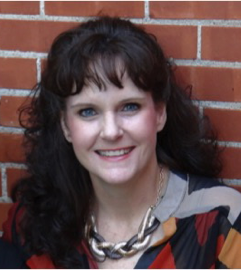 Jennifer Lehman – Johnston, IA
Jennifer Lehman – Johnston, IA
Through my years as a high school chemistry & anatomy/physiology teacher, I found that too many students are affected by all forms of cancer either personally or within their immediate family. By opening up with students about my experience with cancer, I discovered that one of my current students has a parent affected by kidney cancer. I embrace any chance given to provide support to patients and families affected by kidney cancer and welcome the opportunity to work with a group aimed at educating communities about the prevalence of kidney cancer, providing support to those suffering this disease, and obtaining financial assistance towards finding a cure.
It seems we learn more when we go through difficult experiences or make mistakes in life. My kidney cancer journey has been filled with many mistakes by multiple people making the experience more stressful than it needs to be. I believe everyone from general practitioners to surgeons, patients, and even families of patients can learn from past mistakes of others and provide support to one another. As I am still waiting to reach the 5-year mark on recovery, I continue to experience anxiety every six months when it is time for scans. My 4 kids still periodically ask questions about my cancer, the possibility of it returning, and how this affects their risk for cancer; the impact on all our lives is still evident.
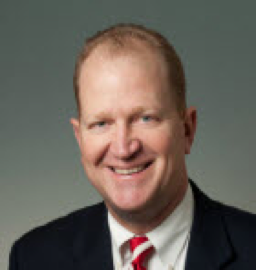 Bryan Lewis – Philadelphia, PA
Bryan Lewis – Philadelphia, PA
Bryan is a 10-year survivor of clear cell Renal Cell Carcinoma.
In recent years, he has led the advocacy efforts for the non-profit organization, KCAN – the Kidney Cancer Action Network – www.kcan.org He has been an active legislative advocate and spokesman for the kidney cancer community in Washington, DC devoting most of his efforts to advocacy on Capitol Hill. Most recently, he was successful in obtaining $10 million for an inaugural kidney cancer program pursuant to the Congressionally Directed Medical Research program http://cdmrp.army.mil
Bryan also manages a boutique consulting practice, Veritas, LLC. He has been retained to provide counsel, strategic planning and management expertise. Previously, he held the position of Vice President, Operations & General Counsel for Brand USA, directing the day-to-day operations of the organization.
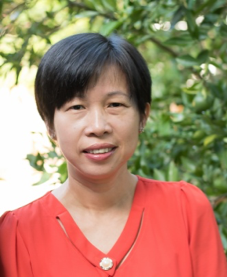 Kathy Liu – San Diego, CA
Kathy Liu – San Diego, CA
Founder & President of Joey’s Wings Foundation www.joeywings.org
Before Joey’s diagnosis of pediatric renal cell carcinoma, Kathy taught at an elementary school. Kathy started Joey’s Wings in 2014, a non-profit to continue Joey’s fight by raising awareness about childhood cancer and by funding research into kidney cancer that affect children and young adults, and to provide support and mentorship programs to parents. While Joey’s fight against the rare and aggressive XP11.2 Translocation subtype of renal cell carcinoma for which no standard treatment protocol exists ended in November, 2014, the organization formed in his memory was able to fund a $100,000 research project in June, 2017 to study childhood renal cell cancers. Additionally, Kathy advocates tirelessly for children with cancer. She helps to increase federal childhood cancer research funding by advocating for legislation that will impact the childhood cancer community.
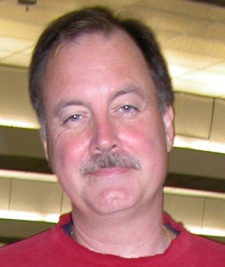 Bill Paseman – Saratoga, CA
Bill Paseman – Saratoga, CA
After a total nephrectomy in 2014, Bill was diagnosed as having Stage 3a papillary RCC, an untreatable, rare kidney cancer. Untreatable means that no treatments (radiation, chemotherapy, or molecular medicines) are effective in halting its spread. Rare means that no one wants to conduct clinical trials (experimental treatments) on rare kidney cancer patients, because they deem the market as too small to pursue. To quote Dr. James Hsieh, “People with rare kidney cancer essentially have no options.” In order to help provide a standard of care for rare kidney cancers such as Stage 3a papillary RCC, Bill Paseman, along with Dr. Hsieh and Deb Maskens, brought together one dozen rare kidney cancer researchers to explore “How to improve outcomes for ‘rare kidney cancer’ patients everywhere.” Rarekidneycancer.org was a result of that collaboration. It has since produced a website, a clinical trial search tool, a refereed paper and is collaborating on a papillary RCC genomics hackathon in conjunction with SV.AI.
Bill, a Silicon Valley veteran, runs Paseman & Associates, an angel investment firm based in the SF Bay Area. Previously, he was founder and chairman of Calico Commerce. During Bill’s tenure as chairman, Calico grew to more than 300 employees, was recognized as the 14th fastest-growing company in Silicon Valley, and achieved the 6th best IPO in the history of the NASDAQ.
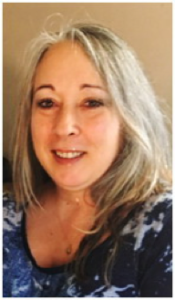 Cindy Vitale – Bellerose, NY
Cindy Vitale – Bellerose, NY
My husband Jack was diagnosed with Stage 4 ccRCC in November of 2014, at the age of 53. We were dismissed from the Emergency Room with no guidance or information. Within 36 hours he had to undergo an emergency nephectomy. We were left overwhelmed trying to navigate through the medical system.
I am interested in advocacy because Kidney cancer is underfunded as far as research, and appears to be still in the early stages of development of and/or adherence to surveillance and treatment protocols. Most importantly to me, I believe in advocacy for inclusion of Kidney cancer patients in clinical trials and patient education as to the benefits of participation in clinical trials.
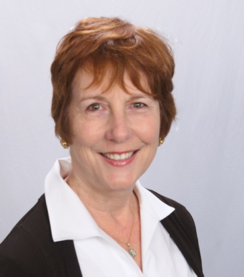 Peggy Zuckerman – Long Beach CA
Peggy Zuckerman – Long Beach CA
Peggy became a kidney cancer patient advocate after her own recovery from Stage IV kidney cancer, and the realization that she was lucky to have done so. Like so many kidney cancer patients, she had been misdiagnosed for many months, and then recommended to another inexperienced doctor. Due to luck alone she received treatment which led to her long-term remission, now 13+ years. With that realization and in gratitude for the patient support she received, she was determined to help others. Thanks to online communities, and patient support groups, attendance at conferences, and countless hours trying to understand the disease, she began to share her knowledge with others. Though active with online groups, she recognized that too few patients had the chance to hear the experts at conferences, so began to share their lectures through a blog, www.peggyRCC.com which has been viewed over 50,000 times. Starting with a few lectures, the blog now contains many articles and access to the library of documents which she regularly shares with other patients.
Peggy is involved with clinical trial design and development as the kidney cancer advocate on the genitourinary committee of SWOG (Southwest Oncology Group); is a speaker/panelist for Prometheus Labs, a member of the Scientific Ethics Advisory Committee of Roche/Genentech and a board member of the Society for Participatory Medicine. She is involved with the Society to Improve Diagnosis in Medicine and has reviewed grant proposals for the Department of Defense/Congressionally Directed Medical Research Program and for Patient Centered Outcomes Research Institute.
